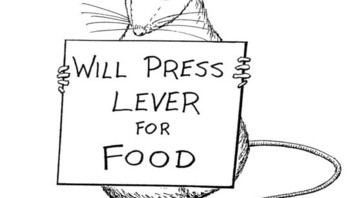A significant number of patients try to take low-calorie diet, weight-loss drugs and stimulant based fat burners, but they experience weight loss only for a short period of time. After a year or two, they return to their original size and shape without even knowing it. That is because it is not weight loss itself which is difficult; it is maintenance. And maintenance can only be achieved by behavior therapy.
If one is to start to change something, it is not diet or exercise plan; it is behavior. Behavior dictates one’s lifestyle, which in turn affects one’s health. For example, high stress can lead to overeating. People who are in a period of emotional turmoil (such as the loss of a loved one) often eat to cope with their problems. Thus, beyond dieting and physical activity, stress-reducing techniques and learning how to cope with emotional problems (with the help of a support group or counselor) are necessary steps to losing weight. All of these behavioral changes can lead to an improved weight management.
The doctor plays a major role in achieving the patient’s weight loss. The said professional has to assess the patient’s motivation for losing weight. And aside from that, he or she has to suggest ways on how to actually lose those extra pounds. The doctor’s motivation and encouragement are the key components to the program.
Moreover, the doctor has to understand the patient’s weight problem (when and how he or she puts on weight). He or she must be aware that most of the patients he or she is handling are victims of shame and hurtful comments from others. He or she must also be knowledgeable of the possible health risks that go along with being obese. Realizing these things can help the doctor motivate and encourage the patients to achieve his or her weight goals. The patient, in his or her part, must realize, however, that losing weight is a commitment that he or she must work at to be successful.
Sometimes the person on a weight loss program finds that he or she is not losing weight. There are several questions that can be asked to a person in this situation to understand what may be happening. Has the person been under stress? Did he or she sustain an injury that interferes with or prevents exercise? Has the person become bored with his or her routine? Answering questions like these can help a person make adjustments that will help him or her achieve his or her goals. Sometimes, a person limiting his or her caloric intake feels deprived and eats more, especially fat-filled foods. Making dietary changes that are small and easier to adopt (for example, eating with a smaller plate than usual) may be a possible solution.
Behavior therapy with low-fat diet, reduced caloric intake, and increased physical activity comprise an effective weight loss program. All of these combined is what makes the patient more likely to maintain his or her weight loss. Changing one’s behavior, certainly, is the first step that must be taken to achieve the final goal. Weight loss drugs and surgery must be pursued only when necessary. This helps eliminate unwanted side effects or harm on the body. As a conclusion, willpower, learning how to lose weight safely, and understanding that the weight loss process has its ups and downs are all needed for successful weight loss and management.
